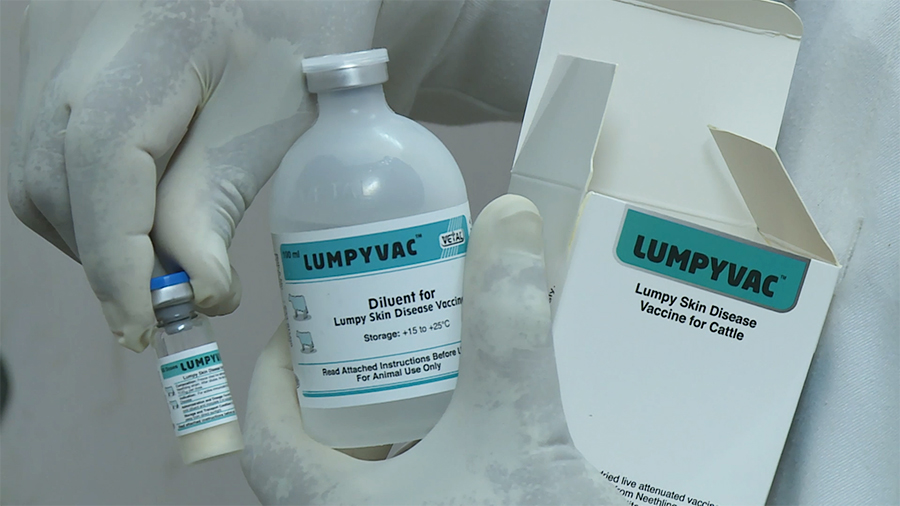
Much to the relief of the farmers across the country, the vaccines for lumpy skin disease arrived in the country today. More than 338,000 doses of vaccines bought from Turkey are stored at the National Centre for Animal Health’s cold storage facility in Thimphu. The vaccines worth Nu 20.5 M will be distributed to all the districts from Monday.
Since the first outbreak of lumpy skin disease from Samtse in January, the viral disease among cattle and yaks has claimed 1,516 animals so far. Meanwhile, over 15,000 animals have been infected across the country as of today.
Farmers affected by the disease have been pinning their hopes on the arrival of the vaccines.
The National Centre for Animal Health under the Department of Livestock assured that they are targeting to vaccinate the susceptible animals in all districts within a month.
According to the Integrated Agriculture and Livestock Census of Bhutan 2022, there are around 300,000 cattle, mithun, buffalo, yaks, and yak crossbreeds in the country. The National Centre for Animal Health shared that the government placed an order for vaccines considering the recent survey statistics.
“This is a very potent vaccine and for each pack, we have doses of 50. We also have the diluents which are 100 millilitres in quantity. So, what we have to do is we have to mix the freeze-dried powder into 100 millilitres of diluents for each animal. We have to give 2 millilitres of this reconstituted vaccine subcutaneously in the skin,” said Dr Basant Sharma, Animal Specialist of the National Centre for Animal Health.
Moreover, the centre added that the excess number of vaccines which comes to over 15 per cent has been ordered as a buffer stock. The buffer stock will be used for calves expected in the coming days.
“Now this vaccine will be used in all categories of cattle, Mithun, buffaloes, and yaks of all categories except for young ones, and calves below one month. Once these calves also attain the age of one month and above, then we are also going to vaccinate these animals,” said Dr Basant Sharma.
He added that infected animals will not be vaccinated as it will cause more damage.
“And once these animals also recover from the disease, we are going to vaccinate them. Of course, when the animals are infected and they have a natural infection, they are also going to get natural immunity. Now once we vaccinate the animals, after three weeks and after vaccination, the animals will be protected against the disease.”
Furthermore, Dr Basant Sharma said that if the animal is exposed to the infection, within these three weeks, there is a likely chance the vaccinated animals will also be infected.
The centre will conduct a virtual meeting with officials from all 20 districts tomorrow to further discuss and plan the rollout of the vaccines as soon as possible.
Most districts are expected to get the vaccines by the 25th of this month.
Devika Pradhan
Edited by Kipchu









